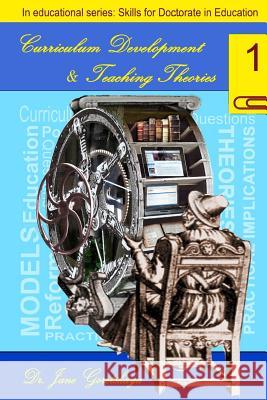Curriculum Development & Teaching Theories (2nd edition) » książka
Curriculum Development & Teaching Theories (2nd edition)
ISBN-13: 9781508916239 / Angielski / Miękka / 2015 / 70 str.
The capacity to pick up the most important issues in education is dovetailed with the attempt to develop and employ a high quality curriculum in schools by highly trained, knowledgeable, and skillful educators. The turning point of the development lies in finding a phenomenon that may lead students to reach a degree of grasping the logical, mathematical, and language terms precisely. Eventually, it is not an easy task to come to a conclusion which type of curriculum may fit the needs of all students. Discussions of the Part 1 of the book 1 Curriculum Development & Teaching Theories will include a variety of views on the pros and cons of multicultural education as it has been expressed in works of contemporary researchers and educators. The following discussion will focus on the existed models of the curriculum and collaborate on the employment of these models in primary, secondary, and higher education and organizational institutions. After an assessment of these models, a reader is expected to be more familiar with the issue and may provide own position within discussions. Discussions of the Part 2 of the book 1 Curriculum Development & Teaching Theories will collaborate on influence theories on teaching. The philosophical and social theories described in this part came from the school of thoughts established by thinkers, educators, sociologists, and scientists during the history of the human mind. Several theories, presented in this part, have been based on the belief system while others were based on the scientific data obtained from the deep research in the educational field. Ultimately, though each educator may not be clearly understood the theory, he or she has followed, each individual-teacher has own perceptions regarding the teaching purpose and method to achieve it, based on his or her learning objectives, experiences, and requirements. In a sense, sections of this part include discussions on influences such philosophical theories as essentialism, idealism, and realism and social theories of teaching.
Zawartość książki może nie spełniać oczekiwań – reklamacje nie obejmują treści, która mogła nie być redakcyjnie ani merytorycznie opracowana.











